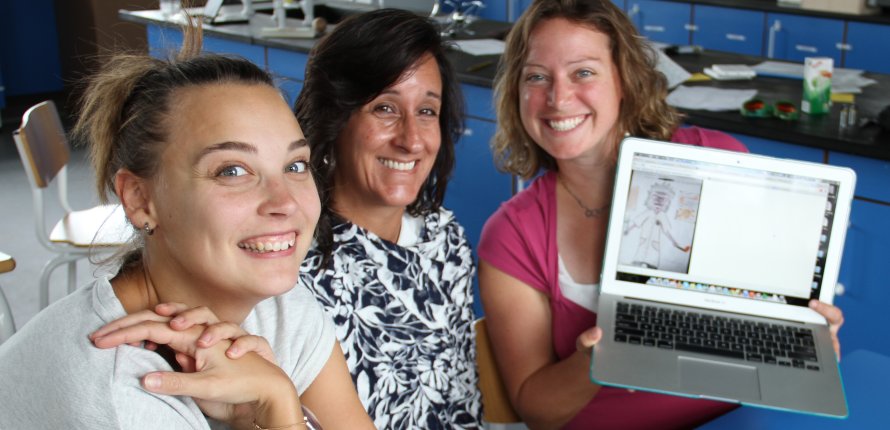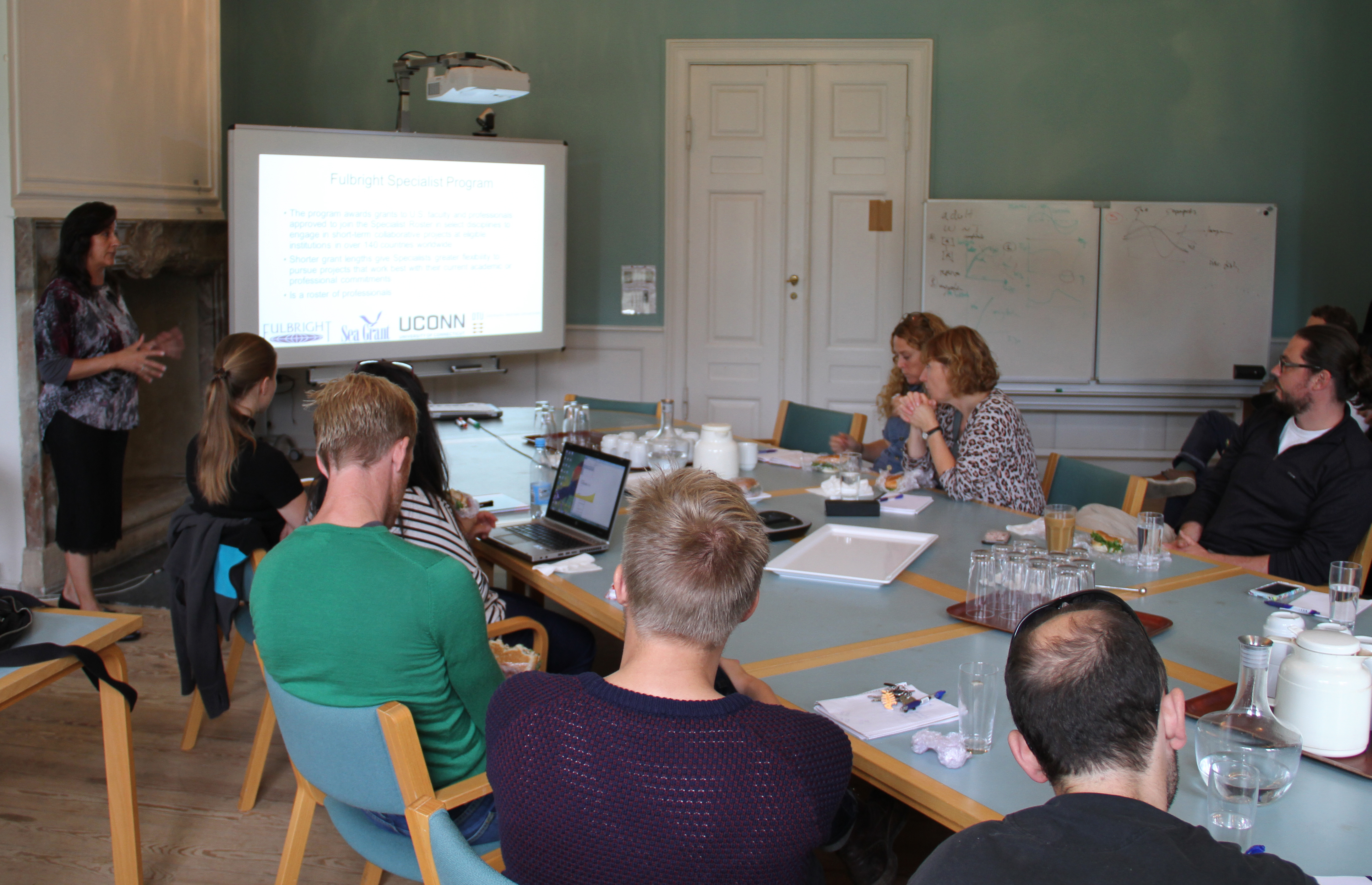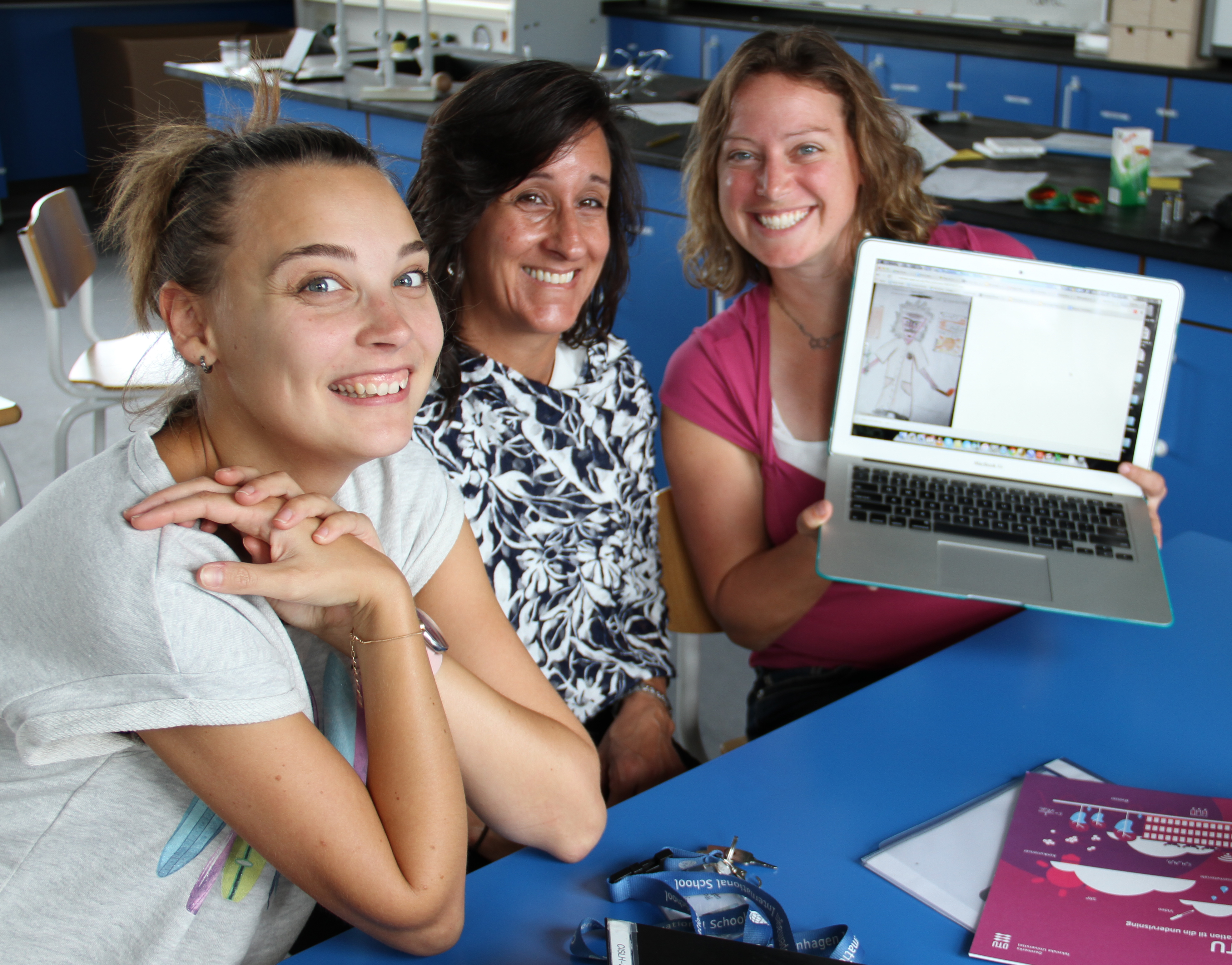An Ocean of Opportunities: The Rising Tide in Developing Global Ocean Literacy

Diana Payne, Assistant Professor of Environmental Sciences, Connecticut Sea Grant/University of Connecticut
2015 Fulbright Specialist to Denmark

The ocean. A seemingly vast salty highway covering more than 70% of the surface of our planet. There is only one global ocean. There are numerous ocean basins, but from a water perspective, it’s all connected. That’s how I became interested in making connections with people across the globe, to foster an understanding of the importance of the ocean to our lives, our health, our planet. For everyone on our planet.
I applied for inclusion on the Fulbright Specialist roster as an expert in ocean literacy because of my involvement with the U.S. ocean literacy campaign and connections with colleagues in Europe interested in promoting ocean literacy. The “ocean literacy campaign” was originally developed in the United States as a response to the lack of ocean science content in the science standards. This grassroots effort resulted in the development of a guide outlining what everyone should know about the ocean and a definition of ocean literacy: “an understanding of the ocean’s influence on you and your influence on the ocean.” An unintended but significant consequence of the guide was a global interest in ocean literacy.
To help foster the interest in ocean literacy in Europe, I spent part of the fall of 2015 in Denmark as a Fulbright Specialist at the Technical University of Denmark–National Institute of Aquatic Resources (DTU Aqua). Although a group of dedicated Americans began the ocean literacy campaign, it has truly gained momentum on a global scale in the last decade. Europe has quickly moved to the forefront. The ocean science and education communities embraced ocean literacy, which led to the European Commission putting significant support behind the momentum, including funding of the SeaChange project.
 During my visit, I was able to assist in meeting some of the deliverables of the SeaChange project, including educating and engaging a wide range of audiences regarding ocean literacy. I provided a three-part seminar the scientists and graduate students on translating their research to non-scientific audiences. I was invited to speak to marine communications professionals at the International Council for the Exploration of the Sea (ICES) conference. I visited schools, informal education institutions and an aquarium to forge partnerships with the institutions and DTU Aqua. My experience was amazing and has led to submissions of proposals to speak at international meetings, the preparation of scholarly articles, and seeking additional funding to continue the great work in Europe and beyond. The most recent product is an invitation to present a session in October at the 2016 European Marine Science Educators Association (EMSEA) conference in Belfast, Northern Ireland with my colleagues from the Copenhagen International School and DTU Aqua. A Danish proverb quite appropriately summarizes this work: many small streams make a large river. It will take many cultures, communities and governments to make an ocean literate society.
During my visit, I was able to assist in meeting some of the deliverables of the SeaChange project, including educating and engaging a wide range of audiences regarding ocean literacy. I provided a three-part seminar the scientists and graduate students on translating their research to non-scientific audiences. I was invited to speak to marine communications professionals at the International Council for the Exploration of the Sea (ICES) conference. I visited schools, informal education institutions and an aquarium to forge partnerships with the institutions and DTU Aqua. My experience was amazing and has led to submissions of proposals to speak at international meetings, the preparation of scholarly articles, and seeking additional funding to continue the great work in Europe and beyond. The most recent product is an invitation to present a session in October at the 2016 European Marine Science Educators Association (EMSEA) conference in Belfast, Northern Ireland with my colleagues from the Copenhagen International School and DTU Aqua. A Danish proverb quite appropriately summarizes this work: many small streams make a large river. It will take many cultures, communities and governments to make an ocean literate society.
My Fulbright experience was, and continues to be, a significant highlight of my professional career. A few months ago, I gave a luncheon presentation to the Fulbright Specialist team the CIES/IIE office in Washington, DC. As I prepared my talk, I came across a quotation that aptly summarized my feelings about immersion into a new culture while doing something I am exceptionally passionate about:
The highest and most beautiful things in life are not to be heard about, nor read about, nor seen but, if one will, are to be lived.
-Soren Kierkegaard
Thanks to the Fulbright Specialist Program, I was able to live for a short time in another country where the experience deepened my conviction and dedication to fostering ocean literacy. If such progress was made in a short time, I eagerly look forward to facilitating the next iteration with my international colleagues!
